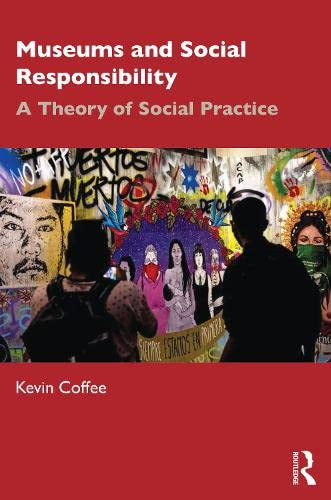

Most ebook files are in PDF format, so you can easily read them using various software such as Foxit Reader or directly on the Google Chrome browser.
Some ebook files are released by publishers in other formats such as .awz, .mobi, .epub, .fb2, etc. You may need to install specific software to read these formats on mobile/PC, such as Calibre.
Please read the tutorial at this link: https://ebookbell.com/faq
We offer FREE conversion to the popular formats you request; however, this may take some time. Therefore, right after payment, please email us, and we will try to provide the service as quickly as possible.
For some exceptional file formats or broken links (if any), please refrain from opening any disputes. Instead, email us first, and we will try to assist within a maximum of 6 hours.
EbookBell Team

4.1
10 reviewsMuseums and Social Responsibilityexamines inherent contradictions within and effecting museum practice in order to outline a museological theory of how museums are important cultural practices in themselves and how museums shape the socio-cultural dynamics of modern societies, especially our attitudes and understandings about human agency and creative potential. Museums are libraries of objects, presenting thematic justification that dominant concepts of normativity and speciality, as well as attitudes of cultural deprecation. By sorting culture into hierarchies of symbolic value, museums cloak themselves in supposed objectivity, delivered with the passion of connoisseurship and the surety of scholarly research. Ulterior motives pertaining to socio-economic class, racial and ethnic othering, and sexual subjugation, are shrouded by that false appearance of objectivity. This book highlights how the socially responsive practitioner can challenge and subvert taken-for-granted motivations by undertaking liberatory museum work that engages subaltern narratives, engages historically disadvantage populations, and co-creates with them dialogical practices of collecting, preserving, exhibiting and interpreting. It points to examples in Africa, Asia, Europe, and the Americas, not as self-contained entities but as practices within a global web of relationships, and as microcosms that define normality and abnormality, that engage users in critical dialogue, and that influence, are conditioned by, and disrupt taken-for-granted understandings and practices of class, ethnicity, sex, gender, thinking and being. Suitable for students, researchers, and museum professionals,Museums and Social Responsibilitypresents a comprehensive argument and proposes critical, reflective processes to the practitioner, so that their museum work may more effectively engage with and change their societies and the world.